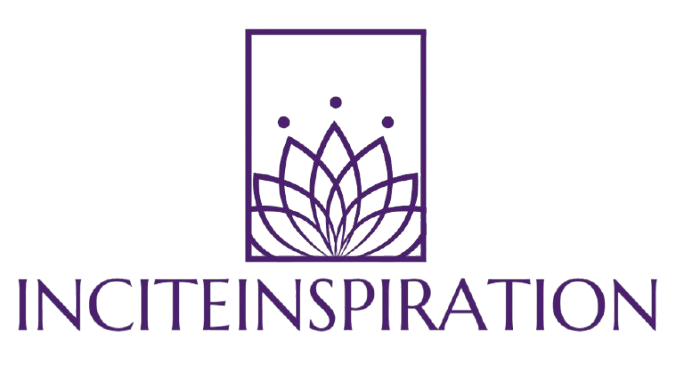Rejection—whether in love, work, or personal relationships—can be a deeply painful experience, but it’s also one of life’s most universal and transformative challenges. From being passed over for a job to having a potential partner decide they’re not interested, rejection can feel like a blow to the heart. Even in its most subtle forms, such as being left out of a social group or not meeting others’ expectations, rejection can stir a mix of negative emotions, ranging from self-doubt to sadness. However, despite the emotional turmoil it causes, rejection doesn’t define who we are. In fact, it’s often a necessary part of personal growth and resilience.
The Psychology Behind Rejection
When we face rejection, especially from those we care about or respect, the emotional impact can be overwhelming. Feelings of guilt, shame, and sadness are common. A failed relationship, an unrequited love, or even the absence of social connections can lead to a profound sense of exclusion. Such experiences challenge our self-esteem and can make us question our worth. This is especially true in familial or close relationships where love and acceptance are expected. Rejection from these sources can leave long-lasting emotional scars.
However, it’s essential to recognize that rejection is a natural part of life, not the end of it. Every person, no matter their achievements or stature, faces rejection. What distinguishes those who overcome it from those who are held back is their ability to see rejection as an opportunity rather than a defeat.
Rejection: A Stepping Stone, Not a Roadblock
Rejection, far from being the end of our journey, can actually be a powerful catalyst for growth. It forces us to re-evaluate our goals, strengthen our resolve, and adjust our strategies. Rather than signaling failure, rejection provides the space to improve and move forward in a different direction.
Consider the stories of some of the world’s most accomplished figures who faced rejection and used it as fuel to reach remarkable heights:
- Dr. A.P.J. Abdul Kalam, renowned Indian scientist and former president, was initially rejected when he applied to join the Indian Air Force. He persisted, later making monumental contributions to India’s space and missile programs as part of ISRO and DRDO. His resilience earned him the title of the “Missile Man of India.”
- Albert Einstein, a name synonymous with scientific genius, faced repeated academic rejection early in his career. However, he persevered and went on to revolutionize physics with his theory of relativity, changing the way humanity views the universe.
- Lata Mangeshkar, India’s legendary playback singer, faced rejection early on due to her unique voice. Despite this, she remained undeterred and became one of the most iconic voices in Indian cinema, with a career that spanned over seven decades.
These examples show that rejection is not a barrier but a detour on the path to success. It’s a reminder that greatness often arises from setbacks, and the most accomplished individuals are often those who’ve faced rejection head-on and refused to let it define their journey.

Different Types of Rejection
While all forms of rejection sting, they affect individuals in different ways depending on their source:
- Family Rejection: Perhaps one of the most painful forms of rejection, this can involve neglect, abandonment, or emotional distance from loved ones. Parental rejection, in particular, can leave lasting effects on one’s emotional well-being, shaping a person’s future relationships and self-worth.
- Social Rejection: Whether through bullying or exclusion, social rejection can occur at any stage of life. It’s often particularly impactful for those who feel like they don’t fit the norm. Social rejection can lead to feelings of isolation and self-doubt.
- Relationship Rejection: In romantic relationships, rejection can happen in many forms—whether it’s unreciprocated feelings, a breakup, or emotional distance. This type of rejection often leaves individuals questioning their attractiveness, desirability, and emotional capacity.
- Professional Rejection: Being passed over for a job, promotion, or business opportunity can lead to feelings of inadequacy or fear of failure. It challenges one’s professional identity and often triggers self-reflection.
The Psychological Impact of Rejection
The psychological toll of rejection can be significant. It can trigger emotional distress, self-doubt, and social anxiety. In the wake of rejection, it’s common to experience sadness, frustration, and anger. These emotions can sometimes evolve into more chronic conditions like depression or anxiety.
Low self-esteem is another common outcome. Rejection often leads individuals to question their abilities, appearance, or worthiness. The fear of further rejection may even prevent them from pursuing new relationships or opportunities, leaving them trapped in a cycle of self-doubt.
However, it’s crucial to understand that these reactions are part of the healing process. They don’t define our worth or future potential—they merely indicate the emotional space we need to move through to grow stronger.
The Benefits of Rejection
While rejection feels painful in the moment, research suggests that it can have long-term benefits. Psychologists have found that rejection can be a powerful motivator, pushing individuals to perform better and strive harder:
- Increased Motivation: According to a study published in Motivation and Emotion, people who faced academic rejection were more driven to perform better in future tasks. Rejection, rather than diminishing effort, sparked a greater desire to succeed.
- Self-Reflection: Rejection often forces us to reflect on our behaviors, desires, and emotional needs. This self-reflection leads to personal growth and helps individuals better understand themselves, fostering greater emotional intelligence and resilience.
- Resilience: Studies indicate that those who have faced familial rejection or social exclusion often develop higher resilience. These individuals learn to rely on themselves and develop a sense of independence, which strengthens their self-identity.
Building Resilience to Rejection
The ability to bounce back from rejection is not innate—it’s learned. Here are some strategies to help you build resilience:
- Don’t Take It Personally: Rejection is often a result of external factors—personal preferences, timing, or even luck. It doesn’t diminish your value as a person.
- Acknowledge Your Emotions: It’s okay to feel hurt, sad, or angry after rejection. Acknowledging these feelings and finding healthy ways to cope with them (such as through self-care, talking to a friend, or engaging in a hobby) is crucial for emotional healing.
- Recognize the Universality of Rejection: Understand that everyone faces rejection. It’s part of the human experience, and it doesn’t reflect your worth. Knowing that others have walked the same path can make you feel less alone.
- Keep Going: Rejection may sting, but it’s not the end. Use it as an opportunity to reframe your approach and try again. Many successful people failed multiple times before achieving their goals. The key is persistence.
Conclusion: Rejection Is Just a Detour, Not the End
Rejection hurts. It challenges our self-worth, shakes our confidence, and sometimes leaves us feeling defeated. But it’s also a necessary part of life, a tool for growth and self-improvement. By changing the way we view rejection—from a setback to a stepping stone—we can better navigate life’s challenges, grow stronger in the face of adversity, and ultimately achieve success. So, the next time rejection knocks on your door, remember: it’s not the end of the journey—it’s just the beginning of a new chapter.

